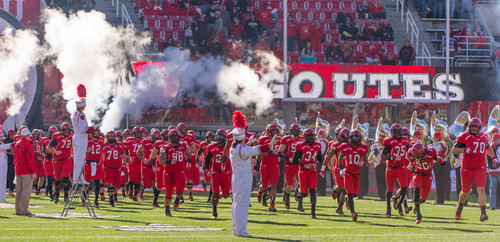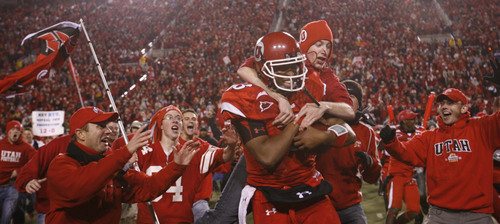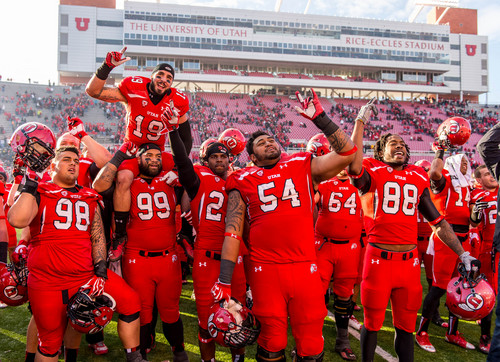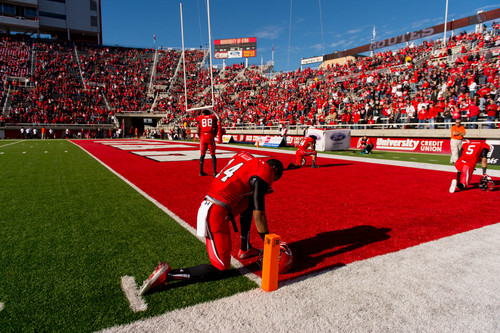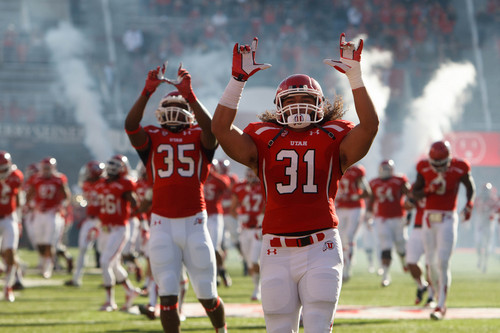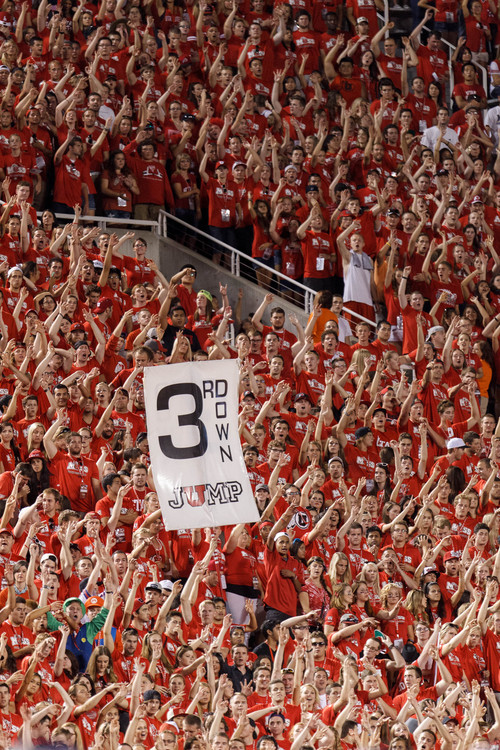This is an archived article that was published on sltrib.com in 2014, and information in the article may be outdated. It is provided only for personal research purposes and may not be reprinted.
After months of passionate debate among alumni, students and sports fans, University of Utah leaders announced Wednesday they're changing the school's iconic fight song to be more inclusive.
The song "Utah Man" will undergo a number of revisions. The line "our coeds are the fairest" will be replaced with "our students are the finest," and the line "no other gang of college men" will be replaced with "no rival band of college fans."
Also, the word "fan" will be added after the word "man" in printed versions of the song, leaving it up to singers whether to stick with "Utah man" or use the gender-neutral "Utah fan."
"When printed officially by the university, this 2014 version of the fight song will be used, but historical renditions of the song will always be acceptable," according to a statement from U. President David Pershing released Wednesday. "We encourage you to sing — loudly and with pride — whichever version resonates with you."
A task force of students, faculty, staff and alumni recommended the changes after reviewing the song, its history and about 1,300 emails from U. supporters about the issue. Discussions about changing the song began earlier this year after the Associated Students of the University of Utah assembly approved opening a public dialogue about revising it to be more reflective of the school's diversity and modern times.
A majority of the emails expressed opposition to altering the song, said Barbara Snyder, vice president of student affairs and head of the task force. Still, the panel decided to recommend changes after meeting several times over the course of about two months.
"We want to respect and preserve tradition, but we also want to be inclusive to all members of our community," Snyder said, "and there were some members of the university community who felt marginalized by the existing lyrics, and we thought it was time to look at updating them."
Former student body president Sam Ortiz, who sponsored a resolution urging the changes, said Wednesday he was gratified by the decision.
"It's important the university sends a message, even on an issue that may seem small like a fight song," Ortiz said, "that it's willing to listen and make changes to reflect its desire to serve a diverse population."
He knows, however, the decision isn't without controversy. In recent months, supporters and opponents often made their points with the type of fervor usually reserved for stadium stands.
Ortiz even received a number of threats, he said, over his advocacy of changes. Snyder said most of the emails received by the U. were "thoughtful and respectful," though some were "very passionate."
Alumna Chalese Eastman was one of those who wrote the school urging leaders not to change the song. The 2007 graduate told The Salt Lake Tribune that, as a woman, she doesn't find the song offensive and believes the term "man" is meant to represent humanity in general. Eastman was vice president of the MUSS, the Mighty Utah Student Section, when she attended the U.
"To me, it's kind of a waste of everyone's time and effort," she said of changing the lyrics, "and again, they're destroying another tradition."
Jacob Johnsen, who graduated from the U. in 2009 and cited his three priorities in life as "family, faith and my football," said the decision makes him angry.
"It's ridiculous," Johnsen said. "I understand we have to be sensitive to different people, but I think people are trying too hard to be offended when there's no reason to be offended."
But Joanne Yaffe, a faculty member in the College of Social Work at the U., is pleased with the changes. She said the issue was brought to her attention by other faculty members when she led the Presidential Commission on the Status of Women.
"I'm really grateful to the students for doing the right thing and putting enough pressure on the administration to have the administration do the right thing," Yaffe said. "I think the administration was waiting for the students to recognize the issue, and they did."
This isn't the first time the song, written in 1904, has been altered. At one point, a line that said, "We drink our stein of lager and we smoke our big cigars" was changed to the line about fair coeds.
Alumnus Michael Johnson, who graduated in 1994, said he considers the song to be art and doesn't think art should be changed just because sensibilities change. But at the same time, he said, he's not going to cancel his season tickets just because of the decision.
"It's certainly not the most earth-shattering issue that's faced anyone," Johnson said. "It's just not that important at the end of the day. Whatever decision is ultimately made, let's just move on and call it a day and start dealing with the important stuff."
Twitter: @lschencker


